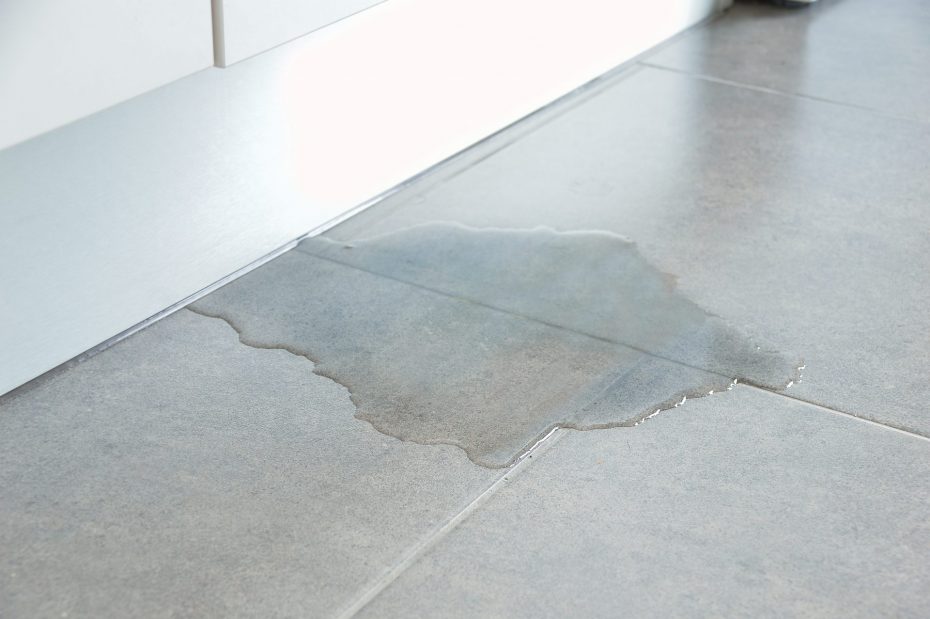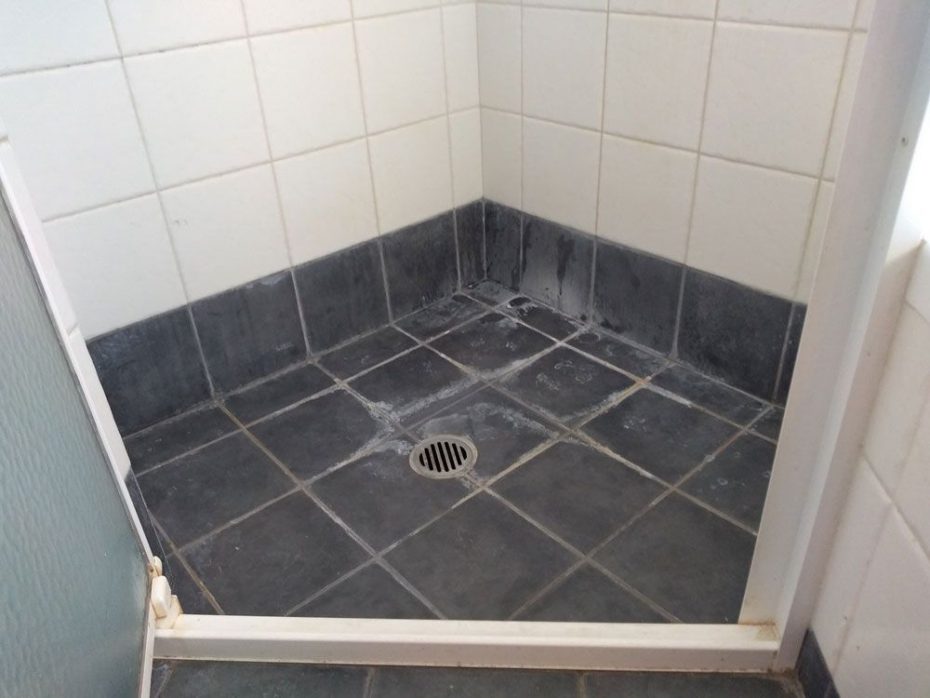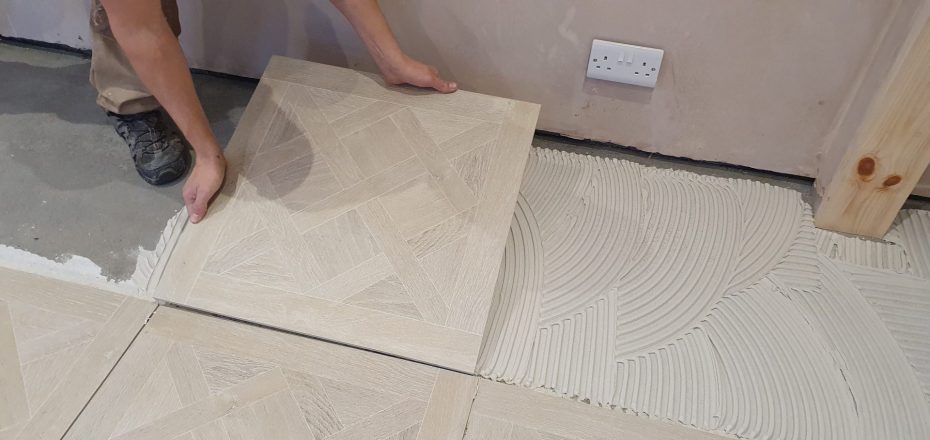Can You Lay Tiles Onto Damp Concrete?

Laying tiles is a relatively straightforward project. However, it is important to make sure that your subfloor is in the right condition before tiling.
Can You Lay Tiles Over Fresh Wet Concrete?
Water is an important part of the concrete pouring process. In fact, there is no way to set our concrete without a large amount of water.
If you plan to lay tiles over your concrete floor, it can be tempting to install the tiles directly on top of the concrete before it dries. It is critical that the moisture in the concrete is allowed to evaporate prior to installing a tiled floor.
As the moisture from fresh concrete evaporates, the bond in the concrete will strengthen. In addition, there must be a certain level of dryness in order for the tile adhesive to be able to bond to the concrete slab.
Excessive moisture can damage grout lines and tile mortar. This can lead to loose or broken tiles in the long run as bonds between them begin to break.

What Tiling Materials Are Affected By Moisture?
Too much moisture can turn a beautiful tiling project into a disaster. Concrete that has a seepage problem can cause moisture to gather in the subfloor layer between the tile and concrete slab.
Many homeowners and even some tile workers overlook the importance of moisture control when laying out new tiles. It is crucial to take accurate moisture measurements prior to installing a new tiled floor or any other type of flooring.
Identifying A Moisture Problem
There is damp concrete, and then there is concrete that has a water problem. It is never a good idea to install tiles over concrete that is suffering from a water issue. The concrete slab must be remediated prior to laying down a new floor. This is in order to assure a strong bond with adhesives that will be used in the installation.
It is important to determine just how wet the concrete is to find the best solution to this problem.
You can perform a moisture test. This will let you know if the tile is porous enough to let water all the way through to the adhesives or not.
Water that rises from the bottom of the concrete floor will cause moisture to seep through the adhesive and grout joints. Over time, this may weaken the adhesive bond between the tile and floor. In turn, this will cause the grout joints to allow water to precipitate, or efflorescence along the surface, which is not ideal.
The easiest fix for this is to treat the concrete with a waterproofing membrane to stop moisture in its tracks.
How else can moisture affect my tiles?
Moisture can not only weaken the bond between the tiles and the adhesive, but it can even allow bacteria to bloom into a mould. A couple of the materials used in tiling floors are highly susceptible to moisture-related complications.
The adhesives used for tiles are the most prone to failure when exposed to moisture. Recent changes in the industry have limited the use of volatile organic compounds in tile mortar. This has increased the usage of moisture-sensitive tile adhesives as a result.
It is critical that adhesive with the proper moisture tolerance is used during installation. Otherwise, there is an increased risk of a failed bond between the adhesive, subfloor and tiles. Ensuring that there is no moisture in the concrete floor prior to laying your tile is the best way to know that the adhesive bonds successfully.
The Problem With Tiling Over Wet Concrete
We have touched on how moisture affects the bond with adhesive under tiles. However, there is more to laying a new floor on damp concrete.
Moisture can create long-term problems that affect the value and beauty of your home. In addition, unchecked moistures can even lead to bacteria and mould growth which is a health hazard in the home.
Wat is Efflorescence?
Have you ever noticed white powder or gritty mould on tiles in older homes? This whitish residue is called efflorescence. It often is found on mosaic floors and grouted tiles that have a moisture problem originating from the subfloor.
This whitish substance is a result of water-soluble minerals being pushed through the grout. The moisture eventually evaporates but leaves behind the minerals on the top of your tile and in your grout groves. These minerals come from under the concrete slab and from the concrete itself.

This moisture would only reach the surface if your concrete didn’t have a moisture barrier applied. It can also occur if the concrete was damp during tile installation. Depending on the severity of the problem, this can lead to chipped or flaking grout.
What Causes Damp Concrete?
In most cases, damp concrete is a result of the water that is used to mix the cement before the concrete is poured. Nothing but adequate time to dry will correct the moisture ratio. A few other sources of moisture can prevent concrete from curing properly.
Considering that you plan to lay down tiles, chances are the concrete is indoors. Some indoor sources of excess moisture are leaking pipes in the walls or under the floor. However, it could be something as simple as condensation due to the type of environment.
When the level of humidity in the room is lower than the air, the concrete will begin to absorb excess moisture. This can cause dampness.
The Bottom Line
Here at Atlas Ceramics, we are experts at everything tile related. We want you to get the most value out of your newly tiled floors.
Laying tiles on top of damp concrete is not a good idea if you want to create a strong bond between your tiles, the adhesive, and the subfloor.
With the tips above you can determine where the extra moisture on your concrete is coming from. You can then correct the problem accordingly. Our skilled craftsmen are also standing by to lend a professional hand if you need help with your next tiling project. Give us a call today on 01425 621173 to find out how we can help you further on your tiling journey.




















































